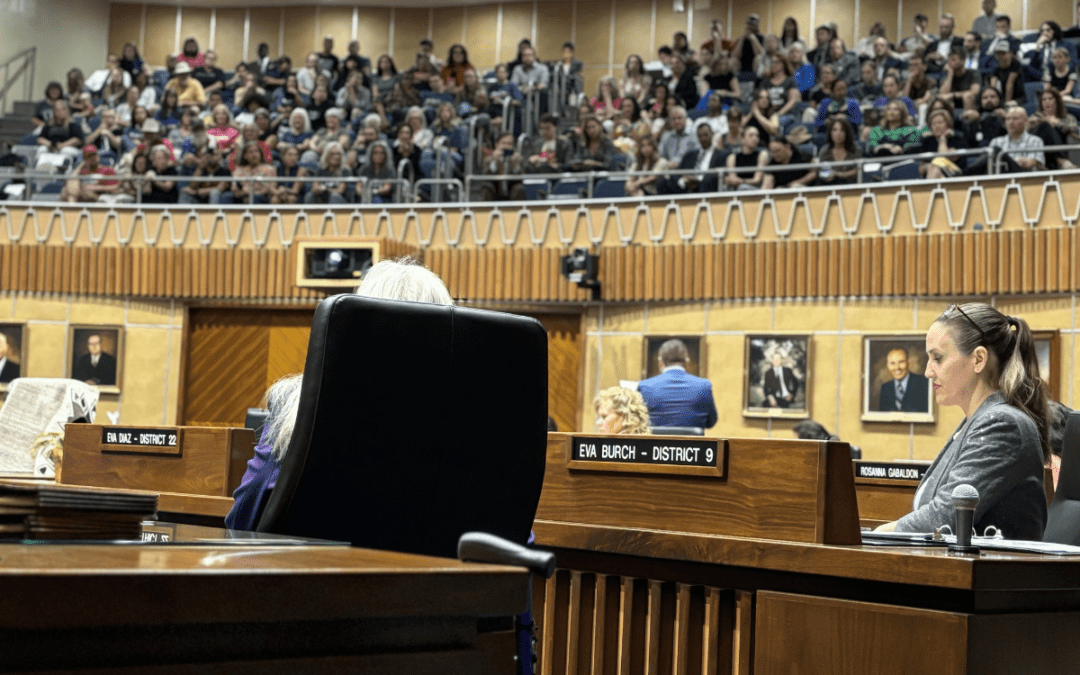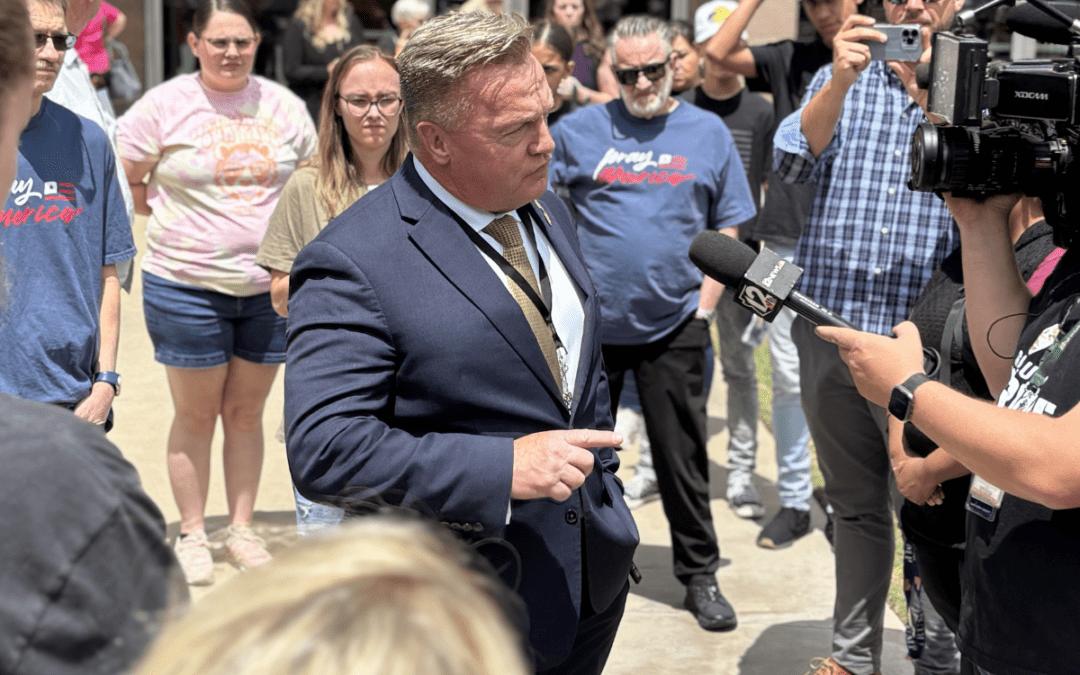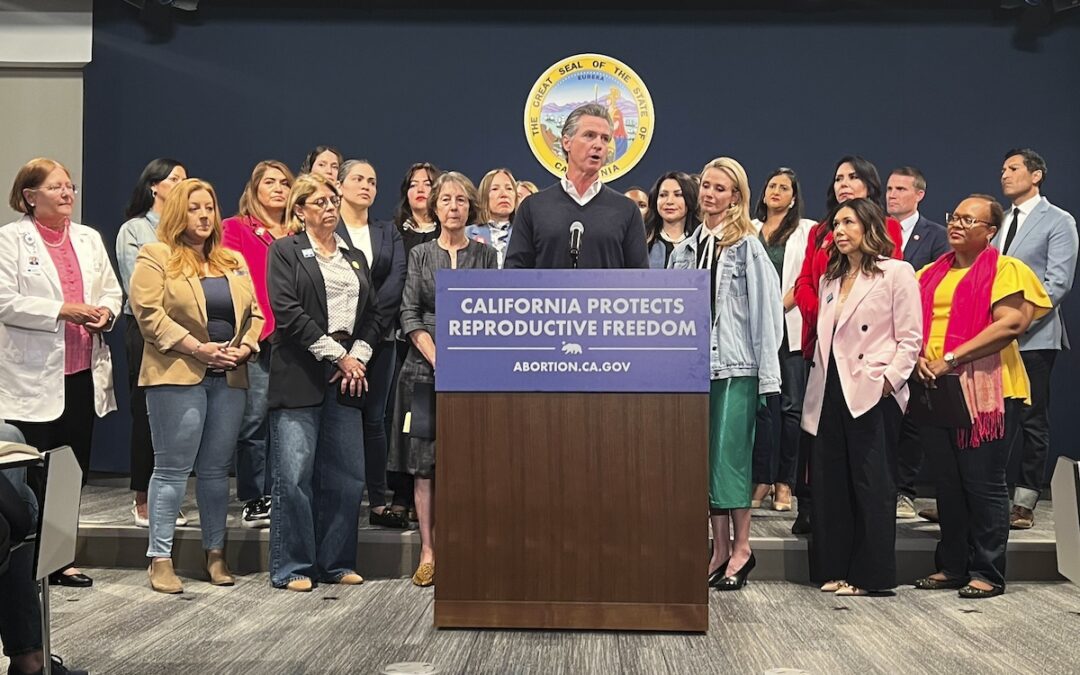
=
“Given the fluidity of the public health situation, this will be a living document that will be updated based on the most current information.”
Arizona’s superintendent of public instruction, Kathy Hoffman, released guidelines Monday for reopening the state’s schools. The document outlines plans for multiple scenarios, based on the state of the coronavirus pandemic in the fall.
The guidelines, which outline best practices for limiting the spread of the virus–including cleaning recommendations, limiting large groups, possibly wearing masks and many other details–comes just days after Republican Gov. Doug Ducey said he was allowing schools to reopen in August to all 1.1 million Arizona public schoolchildren.
“[The document] provides a series of recommendations for how schools can approach the 2020-2021 school year and offers adaptable considerations to meet each community’s unique needs,” Hoffman wrote. “Given the fluidity of the public health situation, this will be a living document that will be updated based on the most current information.”
The Arizona Department of Education guidelines ultimately leave it up to school districts to decide to what extent they will implement the state’s recommendations, and encourages them to maintain social distancing practices and other guidance from the Centers for Disease Control and Prevention.
Reducing class sizes will prove to be difficult in Arizona. Before the pandemic, there were more than 1,800 teacher vacancies–and more may be coming. A recent USA Today/IPSOS poll found that 1 in 5 teachers said they were unlikely to return to their classroom in the fall if their schools reopened.
RELATED: Ducey Says Arizona’s Students Are Headed Back to School in the Fall. But Are the Teachers?
Educators in Arizona have also expressed the need for flexible plans to fit the needs of each region of the state, especially in places that don’t have enough resources, such as widespread internet access.
There is also concern for the health and safety of educators, especially for teachers who are older or who have underlying health conditions.
And it’s not just the teachers who are wary about returning to an in-person setting.
“There are going to be a lot of changes,” Christine Thompason, president of education advocacy group Expect More Arizona, said. “There are going to be some families who might have immunocompromised family members who just decide they’re going to keep their kids home … and there’s going to be others who are willing to send their kids to school, whether it’s in-person five days a week or some blended model.”
Some Arizona school districts had already started moving forward before Hoffman’s guidance was issued, and are already deep into the planning process for reopening their schools that shut down in March.
The Alhambra Elementary School District in west Phoenix was among the first schools to close in the spring. Superintendent Mark Yslas announced on March 12 that students wouldn’t return from Spring Break as planned on the 16th. At the time, there were only nine reported coronavirus cases and the governor hadn’t ordered a statewide closure.
As a school leader responsible for 14 schools and about 12,000 students, Yslas said he closed the schools because they didn’t have a plan to deal with the virus.
“I said I’m not closing because I know what to do,” said Yslas. “I’m closing because as a leader I don’t know how to keep my kids and my families and staff healthy.”
RELATED: What Will Happen In The Fall? School May Be Over, But Teachers’ Worries Aren’t.
In the past several weeks, his district has been planning for reopening. They’ve decided to use a fall school calendar that will allow options for scaling back in-person classes. They are also considering limiting the number of students on buses. The district is even planning to teach parents how to handle their students after school. That involves telling them to have their child shower and change clothes immediately after coming home from school, before interacting with other family members.
“Because we have a sense of responsibility to also keep our families as safe as possible,” he said.
At the Kyrene School District, which covers portions of south Phoenix and parts of Tempe, Chandler, Guadalupe and the Gila River Indian Reservation, Superintendent Jan Vesely is planning a full reopening with distance learning options for students whose parents aren’t comfortable with sending them back to school.
“We are absolutely ready to reopen,” Vesely said Monday.
She said the new state guidelines track closely with those from the CDC and the district is close to finalizing a detailed reopening plan. The district will focus on health and safety and on providing choices for parents.
“There will be remote and online learning as well as in-person options,” she said.
Kyrene, which has 25 schools teaching about 16,500 students, also closed before Ducey issued his statewide order. Vesely said she acted because parents, who were physicians and advising her, became increasingly concerned.
“They were talking to me and telling me that they felt a school closure was inevitable,” she said. “When I noticed they started pulling their children out, I felt like they were doing that because it was in the best interests of their children, and I felt like it was in the best interests of our community.”
As schools plan for reopening, they are receiving extra federal cash to help pay for more staff, cleaning, and other costs of dealing with the coronavirus. But Pedro Lopez, a parent and board member at the Cartwright Elementary School District in the west Phoenix community of Maryvale, said more is needed and has called on the governor to provide it.
“Definitely the (federal) money we received will be put to use to get us through,” Lopez said. “The question is whether he is willing to support us going back to school in August with money.”
The Associated Press contributed to this report.
Politics

Democrats successfully force vote on repealing 1864 abortion ban, passes House
The Arizona legislature moved forward two bills Wednesday that would repeal the state’s 1864 abortion ban. A bill to repeal the ban has been...

State Official: 1864 abortion ban gives Arizona ‘black eye’
Arizona’s role at the forefront of the climate crisis, defending democratic elections, and protecting reproductive rights has caught the attention...
Local News

Arizona Sens. Anthony Kern, Jake Hoffman, indicted for fake election scheme
Eighteen individuals involved in a conspiracy to overturn Arizona’s election results in 2020 were indicted by a grand jury Wednesday and charged...

Gov. Gavin Newsom wants to let Arizona doctors provide abortions in California
California law generally allows abortion up to the point of fetal viability, which is around 24 weeks. SACRAMENTO, Calif. (AP) — Arizona doctors...





